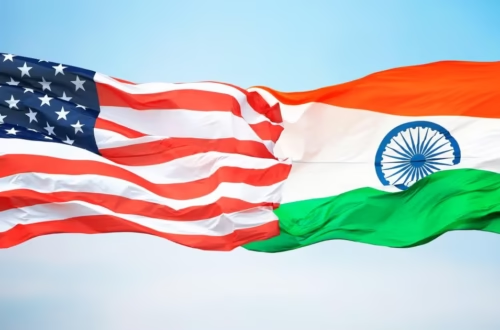Sustainability in the organic sector extends beyond the farm gate. As a responsible Indian exporter committed to ecological principles, Radiance Overseas recognizes the environmental impact of international logistics and shipping. While moving goods across continents inherently consumes resources, we are actively exploring and implementing ‘green logistics’ practices to minimize our environmental footprint wherever possible. This involves conscious choices in packaging, optimizing transport routes, collaborating with logistics partners on sustainability initiatives, and considering the entire lifecycle impact of getting our organic products from India to our global customers.
Why Focus on Green Logistics in Organic Exports?
The organic philosophy centers on ecological harmony and minimizing negative environmental impacts. Extending this ethos to the logistics phase is crucial for several reasons:
- Reducing Carbon Footprint: International shipping is a significant contributor to global greenhouse gas emissions. Optimizing routes, choosing fuel-efficient carriers, and exploring alternative fuels (where feasible) can help mitigate this.
- Minimizing Waste: Packaging materials used for export can generate substantial waste. Choosing recyclable, biodegradable, or reusable options is essential.
- Resource Conservation: Efficient logistics planning reduces fuel consumption, energy use in warehousing, and overall resource depletion.
- Brand Alignment & Consumer Expectations: Consumers who choose organic often value broader sustainability. Brands and importers increasingly seek suppliers who demonstrate commitment across the entire value chain, including logistics.
- Regulatory Trends: Global regulations around emissions, plastics, and waste are becoming stricter, making proactive adoption of green logistics practices a strategic advantage.
Radiance Overseas’ Approach to Sustainable Shipping
We are integrating sustainability considerations into various aspects of our export logistics:
1. Eco-Friendly Packaging:**
- Material Selection: Prioritizing the use of recyclable and biodegradable packaging materials, such as jute bags, specific grades of PP bags with higher recyclability, and food-grade paper liners, while ensuring product protection and compliance with import regulations.
- Reducing Plastic Use: Actively seeking ways to minimize reliance on single-use plastics in packaging and container liners, exploring alternatives where feasible and effective.
- Optimized Packaging Design: Designing packaging to maximize container space utilization, reducing the number of shipments required for a given volume.
2. Logistics Optimization:**
- Route Planning: Working with freight forwarders to identify the most efficient shipping routes, minimizing transit distances and fuel consumption.
- Consolidation: Consolidating shipments where possible to maximize container load factors, reducing the per-unit transport footprint.
- Intermodal Transport: Evaluating the use of more sustainable transport modes (like rail for inland transport segments) where infrastructure permits and it aligns with delivery timelines.
- Collaboration with Carriers: Engaging with shipping lines that are investing in fuel-efficient vessels, exploring alternative fuels (LNG, biofuels), or implementing slow steaming practices to reduce emissions.
3. Carbon Footprint Awareness & Offsetting:**
- Measurement & Tracking: Working towards better measurement and understanding of the carbon footprint associated with our export shipments.
- Exploring Offsetting: Investigating credible carbon offset programs that invest in renewable energy or reforestation projects to compensate for unavoidable shipping emissions, offering this as an option or integrating it where feasible.
4. Sustainable Warehousing Practices:**
- Energy Efficiency: Partnering with warehouses that employ energy-efficient lighting (LEDs) and practices.
- Waste Management: Ensuring proper waste segregation and recycling programs are in place at associated warehousing and processing facilities.
5. Collaboration & Advocacy:**
- Partner Dialogue: Discussing sustainability goals with our logistics partners (shipping lines, forwarders, transporters) and encouraging adoption of greener practices.
- Industry Engagement: Staying informed about and potentially participating in industry initiatives aimed at decarbonizing shipping and promoting sustainable logistics.
Challenges and Continuous Improvement
Implementing green logistics is an ongoing journey with challenges. The availability and cost of sustainable packaging alternatives, the current reliance on fossil fuels in global shipping, and the complexity of international supply chains require continuous effort and innovation. Infrastructure limitations for alternative transport modes within India also play a role.
Despite these hurdles, Radiance Overseas is committed to making incremental and systemic improvements. We view sustainable logistics not as a final destination but as a continuous process of refinement, driven by our core commitment to environmental responsibility.
Conclusion: Exporting Organics, Responsibly
At Radiance Overseas, our commitment to organic principles extends beyond the farm. We believe that exporting premium organic products from India should be done as sustainably as possible. By focusing on eco-friendly packaging, optimizing transport, exploring carbon mitigation strategies, and collaborating with our partners, we are actively working to reduce the environmental impact of our logistics operations. Choosing Radiance Overseas means partnering with an Indian exporter who not only delivers quality organic products but also shares a commitment to a greener, more sustainable global trade ecosystem.



